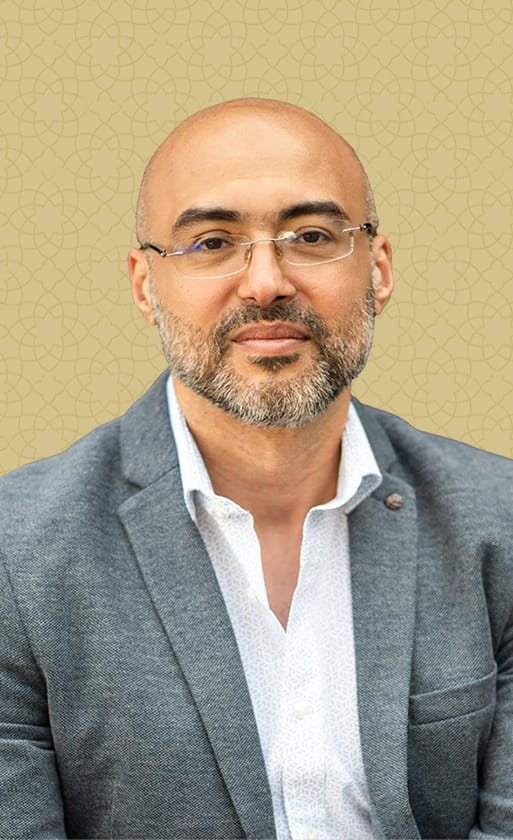Many are asking how this U.S. election cycle impacts Palestine—but perhaps a more fitting question is how Palestine is impacting this U.S. election. Still, both questions merit an answer.
The choice is between Donald Trump and Kamala Harris. Trump, whose foreign policy in his previous term laid the groundwork for the genocide we are witnessing, will likely not only support but unleash Israeli aggression, risking renewed assaults on the lives and rights of Palestininians, Lebanese, and other communities in the Middle East. For Arab and Muslim Americans, Trump represents a double threat: alongside the hardlining of genocide, there is also the potential stripping of influence within U.S. policy-making circles, alongside an overt hostility to these communities domestically.
Then there’s Kamala Harris, standing in for Biden’s legacy. In my view, Biden owns the most disastrous Middle East foreign policy of any U.S. administration in recent history. Even before October 7th, Biden’s administration had sacrificed strategic direction and moral sense without getting any political expediency in return.
Today, we have a genocide unmistakably funded and sanctioned by the Democratic Party - and as a key part of Biden's team, Harris cannot disown it. In the last weeks of the election cycle, she has reiterated her unambiguous support for Israel and effectively dismissed any need for the so-called “Palestine vote” among Arab, Muslim, and other justice-minded communities. In fact, some argue that Trump's foreign policy could hardly be worse than Biden's, or potentially Harris's.
Israel already has the US' unconditional support, with Netanyahu securing all he wants from this administration, effectively steering U.S. Middle East policy himself. Yet this view doesn’t erase the hard fact that both Trump’s and Biden’s approaches have enabled Netanyahu’s wild, aimless drive, which has abandoned strategy in favour of unrestricted violence—a flailing Israel increasingly isolated and at odds with any coherent regional vision.
Others may argue that a Trump presidency may paradoxically foster resilience among Muslim and Arab Americans by compelling a unified response against a collective threat. Power building is not linear, as was represented starkly in Trump’s first term, when many communities came together in collective action. Some argue that doing human rights work is easier when everyone suffers together, as that could sharpen focus on communal resilience.
Among Arab and Muslim Americans, the question of how to respond electorally has already led to some very passionate and polarising conversations. While on the surface these disputes are about who to vote for, I sense a far deeper question.
There are those who reluctantly side with the Democrats, fearing anything other than Biden’s party will be worse. Others advocate for third-party options or abstention, insisting that Democrats need a wake-up call—that they can’t take their votes for granted. There’s also support for Jill Stein, even if her record is problematic; her rhetoric on Palestine resonates with some as a “lesser evil.”
But under this dispute there is a deeper conversation about strategy. Contrary to the common criticism, those refusing to vote for the Democrats in protest of their Palestine strategy are not "single issue voters" - but are a voting block concerned about power and influence within American politics. Decades of political work by the Muslim American community has not achieved tangible positive change to U.S. foreign policy towards the MENA or larger Muslim world - instead, we got successively terrible administrations, culminating in genocide.
There is a real question worth asking: What can and should the community do? For Arab and Muslim Americans, many of whom are prosperous, educated, and well-connected, the central question is how to shift from mere electoral participation to meaningful power-building. This is a conversation that must be inclusive and wide-reaching, embracing different strategies while re-evaluating previous approaches.
Finally, a point that underlies this entire conversation is that this debate extends beyond Palestine. To many Arab and Muslim Americans—and, indeed, to all people who have experienced occupation or subjugation—the Palestinian cause symbolises a universal struggle for dignity, justice, and a livable future. This election, and the conversations around it, aren’t just about choosing a candidate. They’re about defining the kind of world we want and the treatment we demand for our communities globally. It’s no exaggeration to say: in spirit, now, we are all Palestinians.

Iyad is co-founder of Kawaakibi Foundation and author of The Middle East Crisis Factory.


